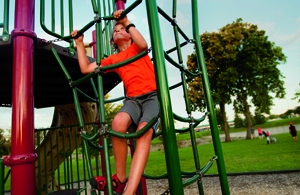Why recess is important: A pediatrician's perspective
9/25/2025 by K. Drew Baker, M.D.

As a pediatrician, I believe recess is critical to every child’s school day. It supports healthy growth — physically, emotionally and socially.
Recess allows children to be active. The Centers for Disease Control and Prevention recommends that kids get at least 60 minutes of physical activity each day. Recess helps meet this goal by giving students time to run, play and move their bodies. This improves strength, coordination and overall health.
Recess also gives children a chance to build important social skills. Children who play together learn how to cooperate, solve problems and manage emotions. These skills help them succeed both in school and in life.
In addition, research shows that students who have regular recess are more focused in the classroom. After a break to move and play, they return ready to learn, with better behavior and attention.
Unfortunately, some schools may reduce or remove recess to increase academic time. But without breaks, children can become restless and less able to concentrate. Recess is not a distraction from learning — it helps support it.
Families can make a difference. Ask your child’s school about their recess schedule and encourage active play at home. By supporting recess, you are helping your child’s mind and body grow strong.
K. Drew Baker, M.D., is a physician in Community Pediatric and Adolescent Medicine in Rochester, Minn. He has over 30 years of experience as a pediatrician and medical educator. He enjoys walking his two rescue golden retrievers, exercising at the Dan Abraham Healthy Living Center and traveling.
